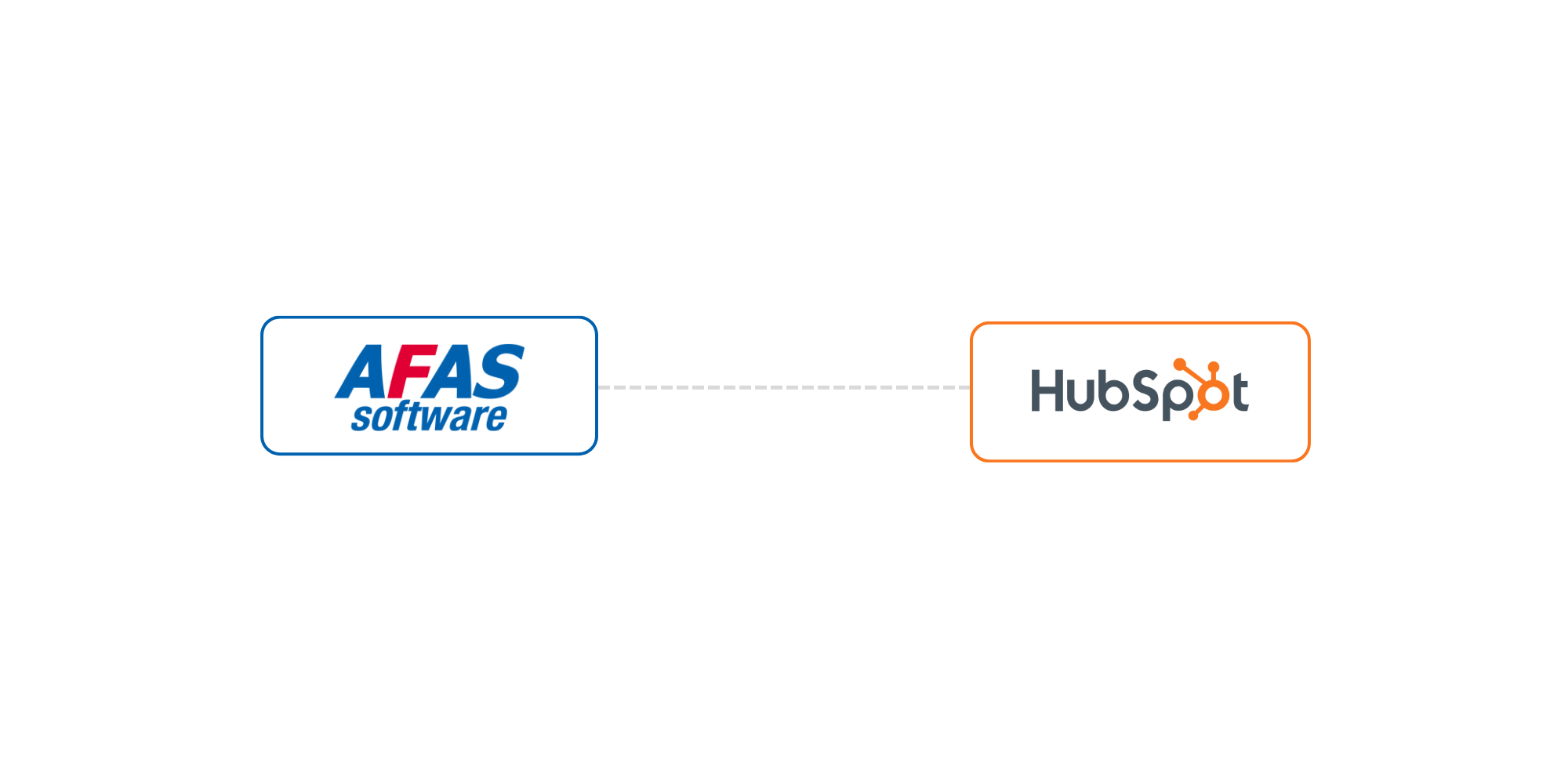Business processes are leading in integrations
Not many companies can run all their operations with a single application. The finance department often uses different software than marketing and sales. But there is still an overlap of data across systems. For example, your accounting application will contain customer data, while HubSpot contains lead data in addition to the same customer data.
If you want to streamline your company’s processes, integrating different applications can be a smart move. Integration can save a lot of time, prevent mistakes and increase the options for integrated reporting. HubSpot is set up specifically to perform this central function. With extensive capabilities for both standard and tailor-made integrations, you can gather all your business data into HubSpot to enjoy these benefits.
HubSpot as a central point
Business processes
Efficiency
More about integrations
When to use a native vs when a custom integration using the API.

Process
Preliminary investigation
Integration always starts with a preliminary investigation to identify requirements and business processes. We make our recommendation on that basis.
Development
During the development phase of an integration project, we write the specific software code that ensures that different applications can communicate seamlessly and we do extensive testing to ensure that everything works smoothly.
Implementation
Once the development phase is complete and the integration has been tested, it’s time for the implementation phase, where the integration is actually connected to the existing systems. This includes configuring and installing the integration in the production environment.
Commissioning
After successful development and implementation comes the commissioning phase, where we hand over the integration to our customer. This handover includes documentation, training and support for effective management and use of the integration.
Standard integrations
If you are using a well-known, widely used application, the chances are that HubSpot’s App Marketplace will already have an existing integration available. A standard integration is a quick and easy way to synchronise data between HubSpot and another system.
If there is no integration available or the standard integration does not meet your needs, there is always the option of using integration platforms like Zapier as well. Conversion Crew will help you set up the default integrations so that your data can be transferred to HubSpot as completely as possible.
Tailor-made integrations
When a standard integration is not available or the business processes are too complex, custom integration is often the only possible solution. Fortunately, HubSpot offers a comprehensive API that makes it possible to develop this integration.
When you embark on this journey with Conversion Crew, we start by mapping out the business processes the integration is going to support. Armed with this understanding, we can then determine what requirements the integration must meet, after which we can tackle the technical realisation.
Accreditations
Quality is paramount at Conversion Crew. That’s why the team are always working on their development. We test this knowledge with HubSpot to safeguard the level of quality, as shown by the Custom Integration accreditation, based on client references, interviews and cases.

Custom Integration
With the Custom Integration Accreditation, Conversion Crew has demonstrated demonstrable experience in successfully extending HubSpot CRM through integrations
The right developer for your process
These friendly experts are ready to help you with your development project.
.png?width=2000&height=1000&name=Exact%20online%20(2000%20x%201000%20px).png)
Exact Online integration
Having the HubSpot-Exact Online integration helps you getting rid of the time-consuming task of manually importing data. This saves you time and prevents errors.

AFAS integration
Are you using AFAS and want to sync it with HubSpot so that your data is shown there? A custom integration will be required to make these two systems talk to each other.
YincQ
A delightful collaboration between YincQ and Conversion Crew resulted in the implementation and configuration of a well structured system, including the connection of YincQ’s very own platform FinancieelGezond.nl creating a centralized place for valuable information.

If you want to find out more about integrations...
Conversion Crew always starts by taking a critical look at the best solution for your organisation. Tailor-made or standard integration is by no means the only way to realise your objectives. If this is the case, however, we will make thorough preparations to ensure that the integration will contribute positively to your organisation. If you want to brainstorm about your application stack and opportunities for integration, get in touch with us!

Frequently Asked Questions
Frequently asked questions about integrations with HubSpot.
Many business applications can be integrated with HubSpot, such as ERP systems, e-commerce platforms and data warehouses. Standard links are already available for many applications; for those without standard links that do have an API, we can offer custom integrations.
The first step is to find out if a standard integration is available and whether it meets the integration requirements. If that turns out not to be the case, we can start with a preliminary investigation to identify the requirements and business processes.
HubSpot integrations can offer a variety of benefits, including centralising data, streamlining processes, improving reporting capabilities and reducing manual tasks.
With HubSpot’s advanced reporting and analytics tools, you can closely monitor the performance of your HubSpot integrations. These tools will help you easily verify that all data has been synchronised correctly and that the integrations meet your expectations and business objectives. Detailed graphs and statistics offer insights into the effectiveness of your integrations and allow you to make optimisations if necessary. This helps make sure that your integrations are seamlessly aligned with your marketing strategy and help you achieve your goals.
You will need to use Operations Hub for some standard integration projects. This platform helps these integrations run smoothly and function optimally. In certain cases, there may also be recurring costs associated with a third party involved in the integration. This could be an external service provider offering the standard integration, for example.
Custom integrations also entail initial development costs in addition to recurring costs for hosting. Custom integrations are more complex and require more expertise, and will require a one-time investment for development.
Whether you opt for standard integrations with Operations Hub or custom integrations, the potential costs involved are an important consideration. We would advise doing thorough research beforehand to determine which integrations best suit your specific needs and budget.












.png?width=100&height=100&name=Visma%20verzuim%20%20(1).png)


